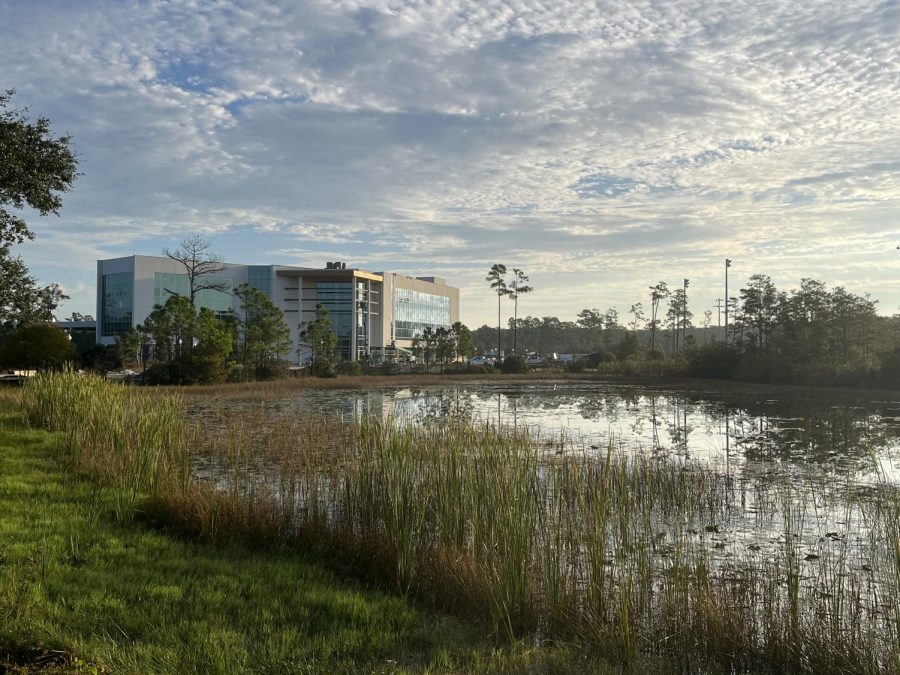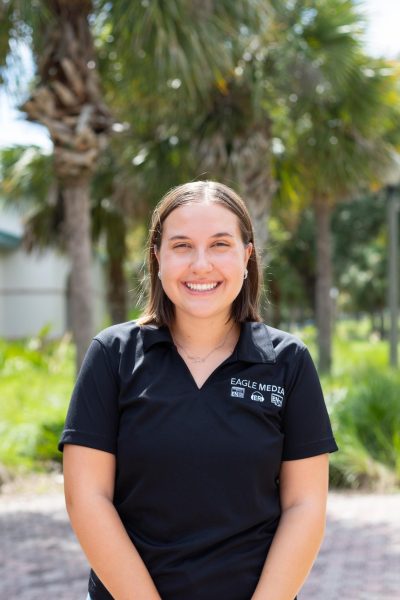Paving the Way for the Water School
February 3, 2022
The opening of the Water School’s $57.9 million building, which was slated for Jan.1, has been delayed until later in the semester. The Water School program has been open for two years, despite not yet functioning out of the building.
“Manhattan Construction started falling behind in the work schedule last summer, and the delay has been exacerbated by supply chain issues,” Coordinator of University Communications & Media Relations Pamela McCabe said. “The building is likely to be done during the spring term, and the university is doing everything it can to ensure the project is completed in a timely and judicious manner.”
Classes will be moved to the new building once the construction is completed, but that doesn’t just include courses for students majoring in Marine Science, Environmental Geology, and Environmental Studies. There will be Chemistry and English classes as well as Anatomy classes and classes from a number of other programs and colleges offered there as well.
There are specific programs and research projects that are being created to address issues like coastal resilience, human health and well-being, restoration and remediation and ecosystem integrity. So, while the new building will be a home to all majors, it has been designed to suit the goals of the Water School.
“We hope that this new building and its resources will enhance learning opportunities and research opportunities for our students and that it can be a meeting place for people in Southwest Florida to discuss important issues of our time,” Executive Director of the Water School Gregory Tolley said. “The Water School brings together faculty from across the colleges to work together on important water and environmental issues, and many of those faculty will be working in space the new building provides.”
Florida has a water problem, and this department was created to address those issues and focus on critical areas. FGCU is a green school already, with about 400 acres of LEED-certified buildings on campus and environmental sustainability integrated into just about everything.
The opportunities that will be created by the addition of the new building will help students focus on finding solutions to the world’s water problems. The construction will boast state-of-the-art research facilities and will help to bring together water-focused faculty and students.
“We have deep ties to the community with the water research we do,” Professor Donald Duke said. “There is a lot of interest and a lot of need locally in the community surrounding water resources.”


































